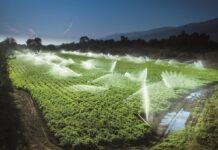
A €45 million multi-partner programme has been launched to help African, Caribbean and Pacific countries halt unsustainable wildlife hunting, conserve their natural heritage and strengthen people’s livelihoods and food security. Funded by the European Commission, the seven-year programme is an initiative of the African Caribbean and Pacific Group of States (ACP).
“This is the first time we have tackled these two issues–conservation and food security–hand-in-hand,” said Neven Mimica, European Commissioner for International Cooperation and Development at the launch ceremony. “This kind of collective effort and comprehensive approach is essential for meeting our dual aims of protecting the biodiversity of forests and savannas, while ensuring the food security of some of the most vulnerable and politically marginalised people on the planet.”
The programme will contribute to the conservation and sustainable use of wildlife in forests, savannas and wetlands by regulating wildlife hunting, strengthening the management capacities of indigenous and rural communities and increasing the supply of sustainably produced meat products and farmed fish. This will help to avert a looming protein deficit for poor rural families and meet the growing rural and urban demand for food.
Participating countries in the project include Chad, Democratic Republic of Congo, Gabon, Guyana, Madagascar, Mali, Papua New Guinea, Republic of Congo, Senegal, Sudan, Zambia and Zimbabwe.
“The challenges this initiative seeks to address are significant and numerous, including health and nutrition, economic development and biodiversity,” reminded Patrick I. Gomes, Secretary-General of the ACP Group of States. “None of these challenges can be solved by a single intervention, so that is why this new partnership is well positioned to provide the multi-sector solutions we desperately need.”
The level of hunting and fishing in the target countries is often unsustainable, affecting wild animal populations in forests and savannas. If hunting wildlife for food is not reduced to sustainable levels, not only will biodiversity be lost, but also countless numbers of families, whose livelihoods depend on natural resources, will suffer soaring levels of food insecurity and debilitating child malnutrition. other agricultural products. Local purchases from family farmers creates markets and helps to improve the quality and supply of food, he stressed.
This is also vital for building resilience and strengthening livelihoods by disseminating information on income generation opportunities, in particular to empower poor women. It is something that can be done relatively simply through the use of mobile telephones, working with the private sector in the development of mobile phone apps that provide market information.








